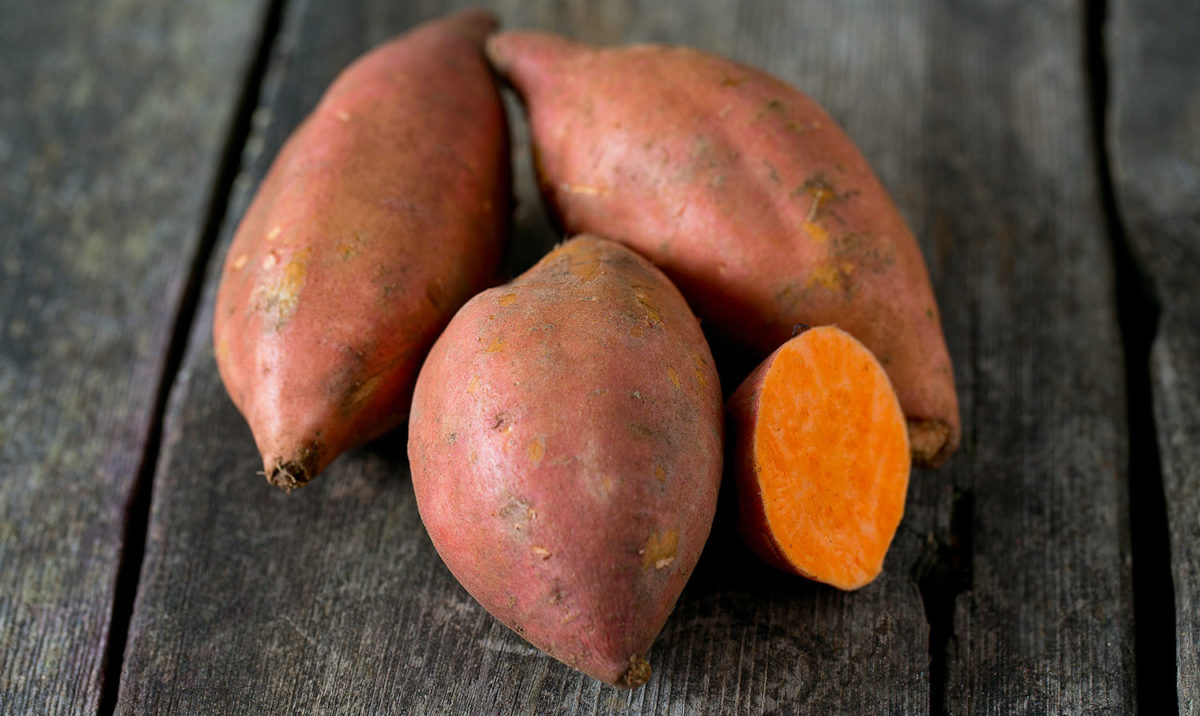First Sweet Potato Trials – 2008 Ireland
In Spring 2008 we brought our first Sweet Potato plants into our laboratory with the very kind help of the people at Louisiana State University in Baton Rouge USA.
We had never ventured into the production of Sweet Potato (Ipomea batatas) before. It was a new area for our plant nursery and we found some very helpful namely Professor Don LaBonte of Louisiana State University Louisiana USA. Don gave me some valuable advice and helped me along my way in sourcing true to type virus clean plants of Ipomea batatas Beauregard the standard industry commercial variety at the time. Beauregard was the exact variety my desk research had shown to be most suitable for our climate. In my desk research the variety Georgia Jet was also highly recommended but Beauregard seemed to be a better quality variety for storage and skin colour, Georgia Jet seemed to problematic especially for Northern European soils and climatic conditions. In our cooking we found Beauregard also to be a better taste than the shop bought ones which were labelled Georgia Jet. At this time in Northern Europe we could not find any known data or production of sweet potato in fact it seems with exception for gardening and small scale planting sweet potato production was not seen as a viable crop. Soils and climatic conditions were deemed to be unsuited to farm scale sweet potato production at this time.
Having secured clean material we propagated mother plants at our laboratory in 2008 and proceeded to see if it was viable to make plug plants from this stock. WE overcame this first hurdle and we found this to be successful. In 2009 we went into limited propagation and produced over 10,000 plants which were sold into UK mail order and we planted our own trials at Kildalton College of Horticulture under supervision of Mr Jim Kelleher Senior RIP Horticulture Advisor. So where to from now with our development of Sweet Potato as an allotment crop in Ireland was the relevant question as the original purpose of our research was this topic?
Early Research
- The results of the first years commercial propagation trial and crop trial had been very positive. It is conclusive that at the very least this sweet potato variety would give a sufficient yield maturity, excellent quality and flavour under protected greenhouse growing environment.
- Having established that Sweet Potato is without doubt a viable crop for the amateur gardener in protected environment. In 2010 we undertook to perform a wider trial to assess the merits of Sweet potato as a commercial crop in protected and outdoor conditions. Organic growing techniques were used and some trials were done with local small producers. These trials with some producers proved unsuccessful yet our own trials again gave very good success. It appeared over fertilisation with nitrogen was a common mistake which led to very lush foliage growth and little to no root development.
- In 2011 trial production of Evangeline, Bonita and Orleans began in Ireland France and Germany. These three varieties added diversity of flavour, colour and shape to our trials. Testing was carried out in Ireland, France, UK, Germany. Hobby market sales were established and to many peoples surprise outdoor production in France and Germany proved very successful in fact some quite surprising yields were realised especially in France. In Germany our trials collaboration led to some data for the first time to show the true genetic capabilities of these varieties. This data emboldened us to widen our research trials in 2012. We started on behalf of LSU registering the new varieties under EU plant breeders rights and had to assist in the development of the testing system by sourcing comparator varieties.
- During 2012 further greenhouse, cloche and outdoor trials were done again at Teagasc Kildalton under supervision of Mr Dermot Callagan with some funding support of an Innovation voucher from Enterprise Ireland our state industry support entity. All varieties were again planted in Germany and France and with certain variations in yield results all varieties were giving acceptable yields even in greenhouse production in Ireland. However the big surprises were the extent and quality of the harvests in Germany and France. IT is worth noting at this point there was no strong proactive interest from any European countries to buy plants from us. We sold as plugs and pricing was relatively high. Most potential clients did not see sweet potato as an interesting crop and no real strong demand was being expressed by buyers to have a European source. Most sweet potato were imported from USA, Egypt and some coming from Honduras, Israel and other South American countries.
- It was now 7 years from first idea to some rising sales of plug plants to wider market and volumes seemed possible. Switzerland began to take keen interest in having locally produced organic grown sweet potato and France began to increase. We shipped even to Sweden, Austria and Slovenia. This was the turning point year when all seemed to be possible. Coincidentally the market suddenly moved and sweet potato became more an item in the consumers and retailers consciousness. Local production in France, Austria, Germany and Switzerland rose and orders started coming for reasonable volumes. Sales arrangements for distribution were agreed and a rise in production was planned for 2014. Some expertise with support of LSU was established and our first formal license was signed for all varieties with LSU.
- Laboratory stock had been established in 2013 for Orleans, Bonita, Evangeline, Murasaki and of course Beauregard in previous years. New formal EU license was agreed. Across Europe positive experiences were being reported with even some farmers reporting 90 tonnes per ha for Orleans. Orleans was proving to be the go to varieties over all others simply based on harvesting quality, grade and yield. Evangeline was the chefs favourite, Bonita was some peoples favourite as it was like Irish potato and Murasaki was a minority variety also. During 2014 we made our first connections with Portugal and established production in Portugal during this year and heavy investments in R&D were made in Ireland on plug production techniques forms of paper, types of plugs, aversion or root spiralling etc. No commercial scale plug production existed in the world even in USA. From 2008 to 2014 we had success in plug production but to address the huge volumes of tens of millions of plants needed it was clear we needed a shift to a warmer climate and a more cost effective planting material. Slips were the only answer and the system to produce them was studied. We endeavoured to improve on the systems used in USA which were very labour intensive and could not work in the same way in Europe in the long term if the crop was to be successful. Plug technology also needed further research to reduce costs. Studies were carried out in USA over the following three years.
- During 2015 we succeeded in sourcing many other as virus clean in-vitro plant material to compare against our key varieties. No varieties out performed our LSU varieties at this point the importation and consumption of sweet potato started to rise and confidence in potential for European production rose in parallel as consumer demand and trendiness of sweet potato was emerging. Sweet potato had arrived as the new superfood vegetable and interest grew in our capabilities from all European countries. More explorations were made in Portugal and some comparative studies were made
- In this year the market had arrived and we were ready Portugal had always seemed the right place to grow sweet potato. A new company was formed, NativaLand, with a Portuguese family investment company and between 2016 and 2018 the story of European Sweet potato development using new genetics and advanced systems learned since 2006 became a fast moving new company based in Muge Portugal. In Ireland continued research and development has escalated and huge experience in many aspects of sweet potato plant health, virus control and elimination, foundation and genebank security and nursery production of Generation 0 plant material is now a specialist focus of Beotanics plant laboratory. Sweet Potato plants are sent every year from Ireland to Portugal and each year a new beginning is made to protect clients against pathogens, storage rot diseases, viruses and other yield debilitating issues. The Beotanics plant laboratory and nursery holds a large repository of genetic lines of sweet potato for future proofing the emerging sweet potato industry in Europe to address European consumer demand for this totally new vegetable in European agriculture industry. The collaboration between Portugal and Ireland in this endeavour is the ideal combination, Ireland is well known to have very low insect vectors that spread sweet potato disease and virus, it is isolated from all sweet potato production and never likely to have field production. The history and passion for the potato in Ireland is world renowned and Ireland was one of if not the first country in Europe to make potato a large part of its stable diet.
- NativaLand completes its first year of establishment and a permanent home is found in Muge Portugal. New greenhouses are planned and built and a new General Manager installed in the company.
- Nativaland is voted most innovative Portuguese start up Agricultural company for 2017, more greenhouses are built to increase capacity. A new website is launched www.nativaland.com a proud moment for the team and Portuguese and Irish partners. Management team is formed and a successful supply year to farmers in Europe Middle East and Africa is completed.
- To see further developments in the agronomy and extension of world class sweet potato production innovation in Europe keep in touch at the Nativaland website. The future looks sweet for European sweet potato production and general innovation in this crop. Nativaland with support of its founders will continue to strive to be best in class in the world of sweet potato agronomy and plant supply services supporting farmers in Europe, Middle East and Africa. We have great ambitions and we believe vision for this crop in Europe
To see how we bring crops like Sweet Potato to levels of commercial viability, click here


